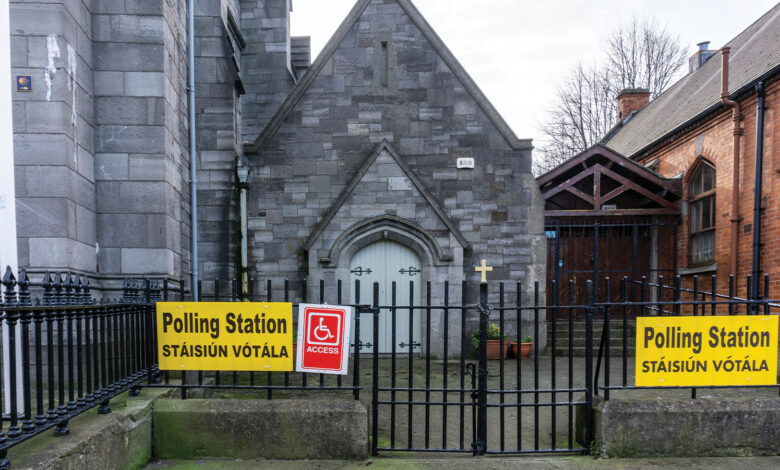High level of confidence in Irish elections

There is a high level of confidence in elections and the democratic process in Ireland, according to research published in May 2025 by An Coimisiún Toghcháin.
The research, formally titled General Election 2024, National Election and Democracy Study (NEDS), indicates high levels of trust in the integrity of Ireland’s elections. For example:
- 94 per cent of respondents agree that elections are conducted in accordance with the law;
- 88 per cent agree that elections are well managed and that election officials are fair; and
- 96 per cent of voters agree that they are confident that their ballot papers were secret once they put them in the ballot box.
Notably, in terms of An Coimisiún Toghcháin’s education remit, the study also suggests that Irish voters are knowledgeable about aspects of the voting and democratic process, but that not everyone is fully engaged in the democratic process and further outreach regarding rules is required:
- 90 per cent of respondents understood that every one of their preferences has the potential to count;
- 76 per cent knew that they did not need to express a preference for each candidate on the ballot paper;
- 36 per cent agreed that information about voting procedures is not widely available; and
- 51 per cent mistakenly thought they needed their polling card to vote.
Other findings of this face-to-face study of just under 1,500 randomly-selected respondents are that:
- Registration prompts: For first-time voters, the influence of their friends, family, school, or work was key to encouraging them to get on the electoral register with 27 per cent citing this as important. 24 per cent were prompted by social media, newspaper, TV, or radio ads which were a focus for An Coimisiún Toghcháin during the election campaign.
- Automatic voter registration: 73 per cent agreed with Ireland having a system of automatic voter registration despite 99 per cent of recently registered respondents considering the registration process to be easy.
- Reasons for non-voting: The highest reasons given by registered people for not voting on 29 November, were being away on the day (30 per cent) work commitments (27 per cent) with 12 per cent pointing to disinterest in politics, indecision at 11 per cent, and 6 per cent who said their vote did not matter. 37 per cent of those who did not vote were not on the register.
- Voting experience: 98 per cent of voters surveyed found the voting experience to be very easy or quite easy.

“We simply have to understand more about who non-voters are and why they are staying away from the polls, and so this data will feed into other research projects we are advancing through our broader research programme, and our public campaigns and engagement.”
Art O’Leary, Chief Executive, An Coimisiún Toghcháin
Engaging the electorate
There are two distinct elements of the study. The first focuses on broad challenges around the quality and functioning of Ireland’s democracy with a particular emphasis on areas relevant to the remit of An Coimisiún Toghcháin.
This includes questions such as those summarised above around voters’ experience of voting and registration, levels of political interest and knowledge, and voters’ information sources. This data will be used to benchmark An Coimisiún’s performance and guide its future initiatives. A key priority for An Coimisiún is to understand the reasons why people do not vote, which is why the study includes a sample of 324 non-voters.
Attitudes to democracy
The second part of the NEDS includes questions which are a key focus for academics in international election studies around the world regarding whether and how people use their vote, motivations around voting choices, government satisfaction, political attitudes, and the factors that influence these.
Questions in this part of the study were selected by the academic members of the NEDS management board. Collecting data in these areas also allows Ireland to be part of comparative research on political and electoral systems, and democracy.
Welcoming this data, Art O’Leary, Chief Executive of An Coimisiún Toghcháin said it highlights the value of NEDS “to learn more about the experience and perspectives of current and potential voters as well as contributing to academic scholarship about democracy and elections”.
“We simply have to understand more about who non-voters are and why they are staying away from the polls, and so this data will feed into other research projects we are advancing through our broader Research Programme and our public campaigns and engagement.”





